(CLO) Religious tensions have increased in Bangladesh following violence related to the arrest of a Hindu religious leader in the southern city of Chittagong.
After Hindu leader Chinmoy Krishna Das was denied bail on charges of sedition on November 26, police said hundreds of his supporters clashed with security forces as his vehicle was returned to prison. Muslim lawyer Saiful Islam Alif was killed in the clashes.
Following the incident, several Muslim groups have called for a crackdown on the International Society for Krishna Consciousness (ISKCON), an international Hindu organization.
Although ISKCON Bangladesh announced on November 28 that religious leader Das was expelled from the organization in July over disciplinary issues, ICKSON Bangladesh President Satya Ranjan Barai said that Das "defied the order and continued his activities".
However, both ISKCON Bangladesh and ISKCON International issued statements condemning the arrest.
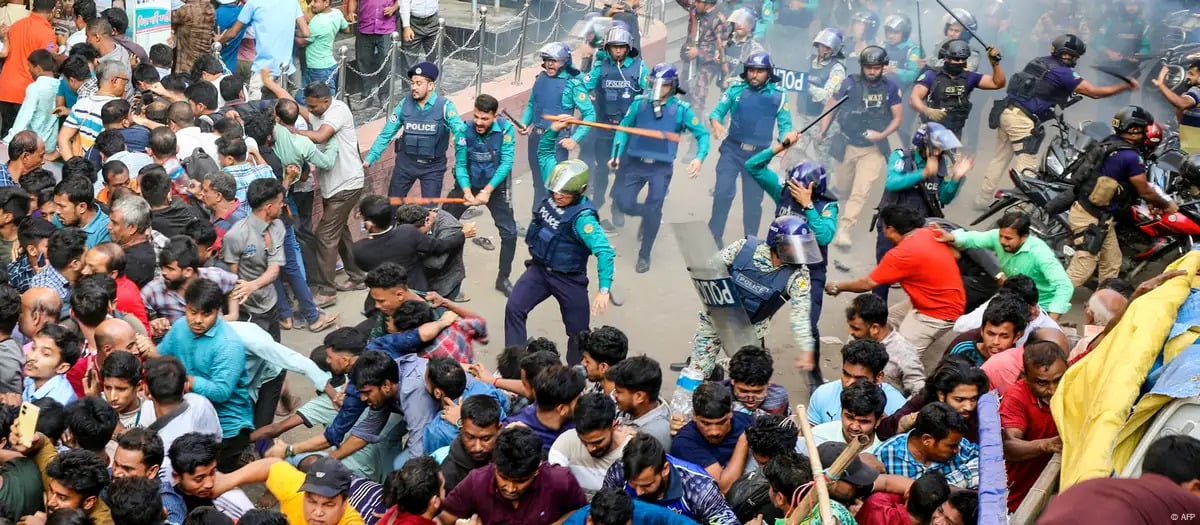
One person has been killed in clashes between security forces and supporters of a jailed Hindu monk. Photo: AFP
Call for banning Hindu group
Religious relations have been volatile in Muslim-majority Bangladesh since the government of former Prime Minister Sheikh Hasina was toppled following student-led protests in August. She fled to India after the protests.
An interim government has taken over and is responsible for setting policies for a new government. Many Islamist political parties, including the far-right Hefazat-e-Islam Bangladesh, have called for a ban on ISKCON Bangladesh.
On November 26, Hasnat Abdullah, an organizer of the student-led uprising that ousted Ms. Hasina, posted on social media calling ISKCON an extremist group “trying to carry out many treasonous conspiracies to destabilize” Bangladesh.
A lawyer had taken up the issue of banning ISKCON as an armed organisation in the Supreme Court on November 27. A day later, the high court dismissed the ban petition.
"Muslims, Hindus, Buddhists, Christians... believe in peaceful coexistence, and this harmony will not be broken," the court ruled.
Shafiqul Alam, press secretary to Bangladesh's chief adviser, said the interim government "believes in freedom of religion, freedom of association, freedom of assembly for all religious organisations. We also believe in ensuring all rights".
He acknowledged that some attacks on religious minorities may have occurred in the immediate aftermath of Ms Hasina's ouster but added that most of the incidents had been exaggerated.
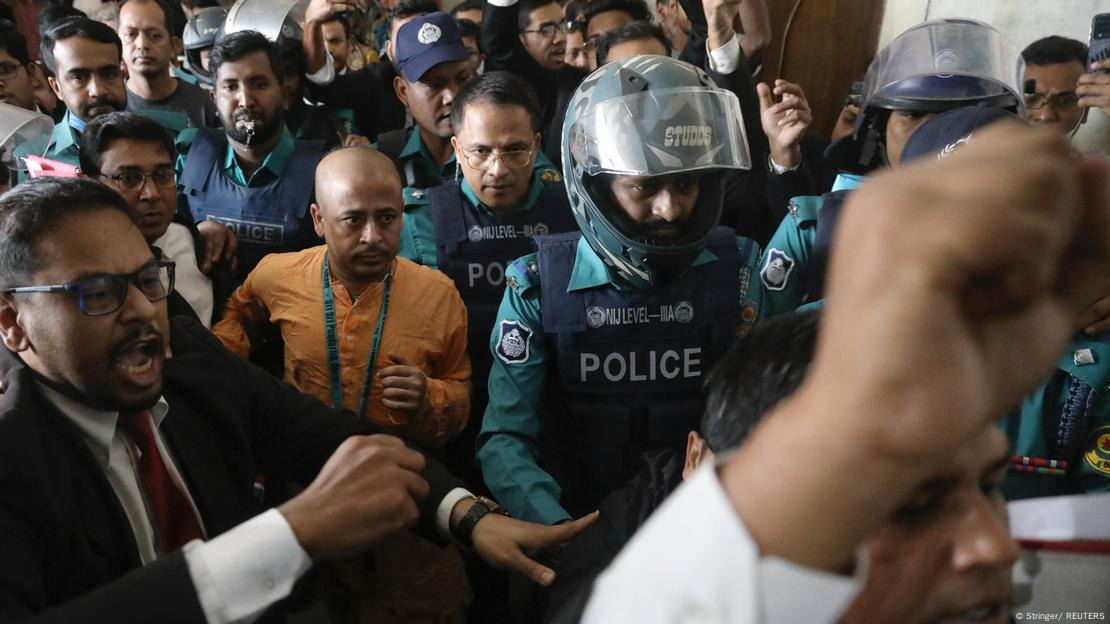
Chinmoy Krishna Das is escorted by police in Chattogram. Photo: Reuters
Controversies over religion and minorities
Manindra Kumar Nath, president of the Bangladesh Council for Buddhist-Christian Unity, a nonprofit that protects religious minorities, said the minority movement in Bangladesh is independent of India and Ms. Hasina’s Awami League.
"The demand for a minority protection law and a minorities commission... has been there for a long time," he said, adding that Hindu students were among those taking part in the protest movement aimed at toppling Ms Hasina's government.
Bangladesh's current constitution designates Islam as the state religion but still enshrines secularism as the principle of the state.
However, Bangladesh's Attorney General Md Asaduzzaman said during a Supreme Court hearing in October that he would support removing secularism from the constitution as it would further restrict the rights of minorities.
"Previously, many governments made promises to us (religious minorities) in their election manifestos. However, after winning the election, they did not fulfill these promises," he said.
The caretaker government said the election date would be announced after the policy reform process is completed. One of the reform committees tasked with considering whether to rewrite or simply amend Bangladesh's constitution.
Ngoc Anh (according to DW)
Source: https://www.congluan.vn/bat-on-gia-tang-o-bangladesh-giua-cac-cuoc-bieu-tinh-cua-nguoi-hindu-post323606.html





























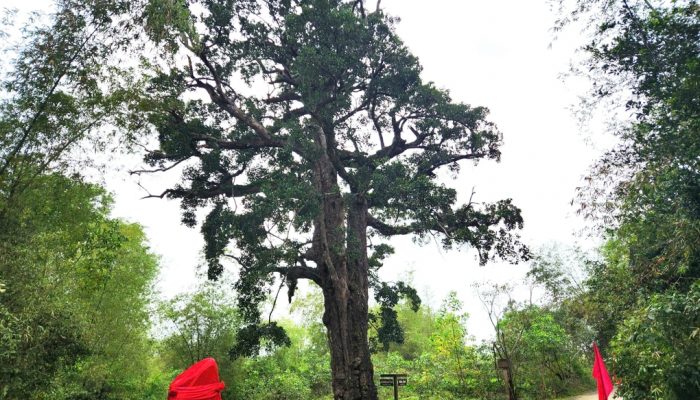

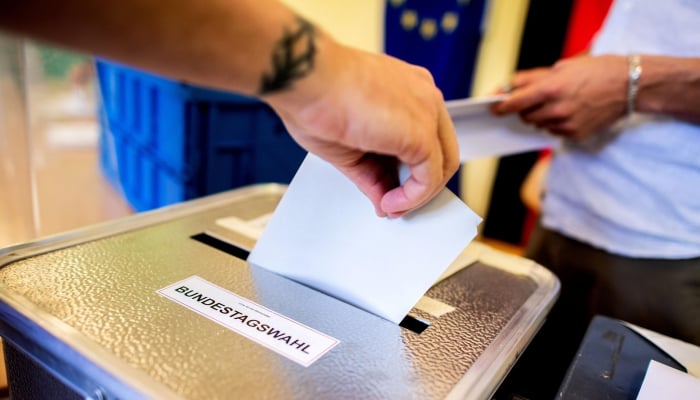

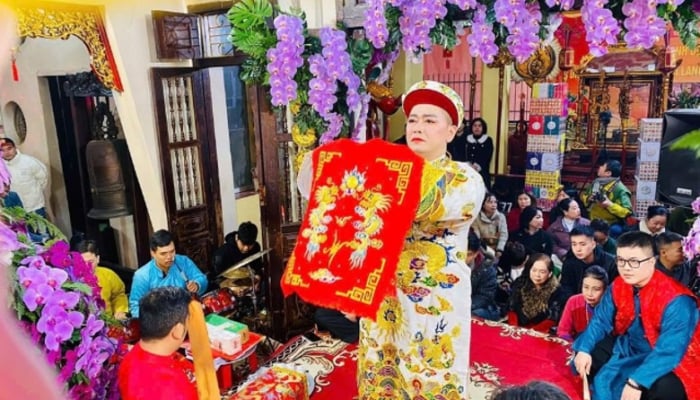
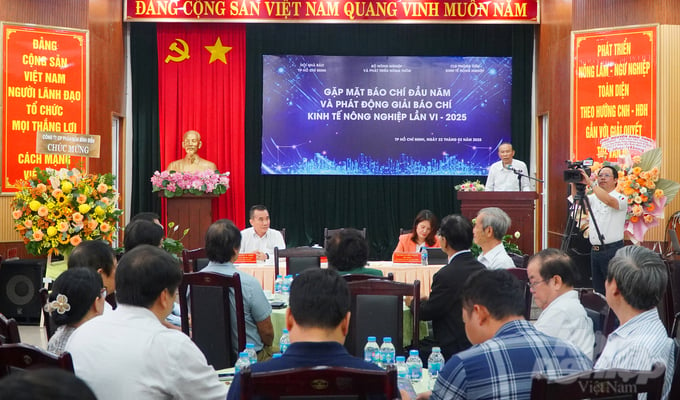




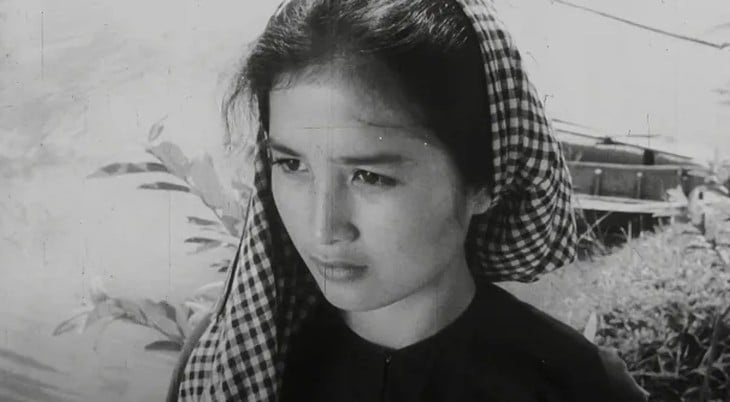





Comment (0)